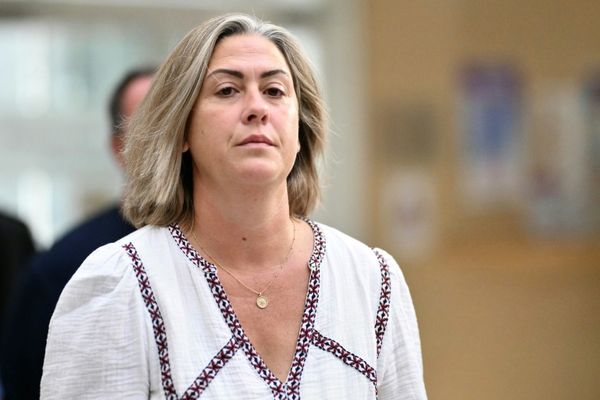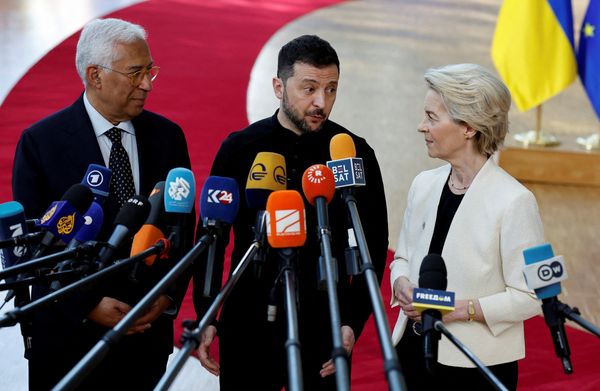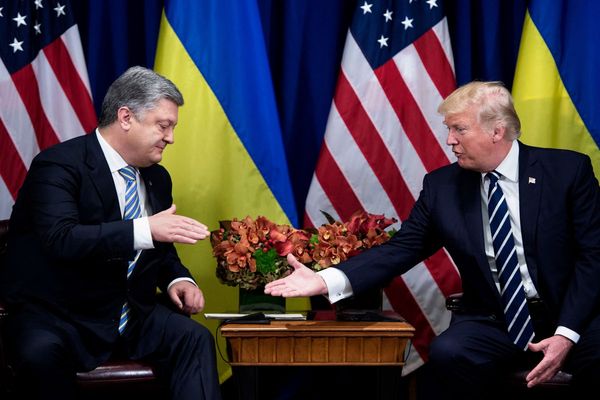There are many positives to be taken from events surrounding the Twelfth of July of 2022.
Back in full swing after being disrupted for two years by the Covid pandemic, the main date in the parading season was enjoyed by many across Northern Ireland without major incident.
Police hailed this year's Twelfth as "one of the safest and most peaceful" in recent memory.
Read more: The 'staggering' cost to the public of cleaning up after bonfires in Northern Ireland
Gone are the days when wider events would be overshadowed by community tensions at a small number of parading flashpoints.
No longer are images beamed across the world of rioting at Twaddell Avenue in North Belfast or stand-offs at Drumcree in Portadown.
The fact that the most high-profile incident was a viral video of an altercation involving a man throwing a bin at a flute band - later dubbed "bingate" and sparking a slew of internet memes - shows how times have changed.
Bandsmen in alien costumes in Antrim brought smiles to many faces, while some debate centred on mixed reviews for ex-DUP leader Arlene Foster's GB News coverage of the Twelfth and the TV ratings battle with the BBC.
Hardly the long hot summer of loyalist unrest over Brexit's Northern Ireland Protocol that some had predicted.
Eleventh Night bonfires are also becoming less problematic, according to statistics. Fire crews attended 35 bonfire-related calls between 6pm on Monday and 2am on Tuesday - a 12.5% decrease compared to the same period last year.
But while the majority of the around 250 pyres across Northern Ireland did not cause significant issues, some continue to attract controversy due to safety concerns and offensive displays.
Effigies of Alliance leader Naomi Long and Sinn Fein's Mary Lou McDonald and Michelle O’Neill on a bonfire in Carrickfergus drew cross-party condemnation.
A bonfire in the Cregagh estate in Belfast was criticised for containing Irish tricolours, election posters and threatening, sectarian and misogynistic messages.
In Larne where a world record for the tallest bonfire was attempted, nearby houses had their windows boarded up and firefighters hosed down properties to protect them against the searing heat.
It is a story that occurs every year over and over again. While incidents seem to be slowly declining, they continue to persist.
And every year there are renewed calls for action to address the problems - but little consensus on a way forward.
A long-delayed Stormont report published last December on tackling annual flags and bonfire disputes did propose some measures.
The Commission on Flags, Identity, Culture and Tradition recommended a set of conditions for bonfires built on public land, including a ban on burning flags or election poster or any other item that could cause offence.
It proposed the distance of a pyre from any physical structure should be five times its height - a restatement of current Fire Service guidelines.
It also recommended that wood for pyres should be made exempt from being classified as controlled waste, in the hope that this would allow landowners who give permission for bonfires to set their own conditions.
However, the £800,000 report looks destined to gather dust, as it was published without Stormont agreeing an action plan on implementing any of its recommendations.
In the absence of political agreement, other avenues are being pursued to address problematic bonfires - and this is working.
In some areas contentious bonfires have disappeared through community regeneration, as new facilities such as housing, football pitches and greenways have been built over the top of the sites.
Redress is also increasingly being sought in the courts.
In 2015, a man was convicted over a racist slogan displayed on a loyalist bonfire in Antrim in what was believed to be the first case of its kind in Northern Ireland.
And Belfast City Council in 2017 secured a landmark court injunction in a bid to prevent further materials being added to four towering Eleventh Night bonfires.
The tools already exist in legislation to help tackle divisive bonfires on a case-by-case basis as problems arise and as the weight of public pressure for change grows.
But without political consensus, taking the heat out of the Eleventh Night will be a much slower and more piecemeal process.
READ NEXT:
- Bonfire removed near Belfast special school due to 'health and safety', education body says
- The 'staggering' cost to the public of cleaning up after bonfires in Northern Ireland
- Public consultation to be held on future of divisive bonfire site at North Belfast interface
- Belfast council risks legal liability for bonfires on its land, internal report warns
For all the latest news, visit the Belfast Live homepage here. To sign up to our FREE newsletters, see here.







